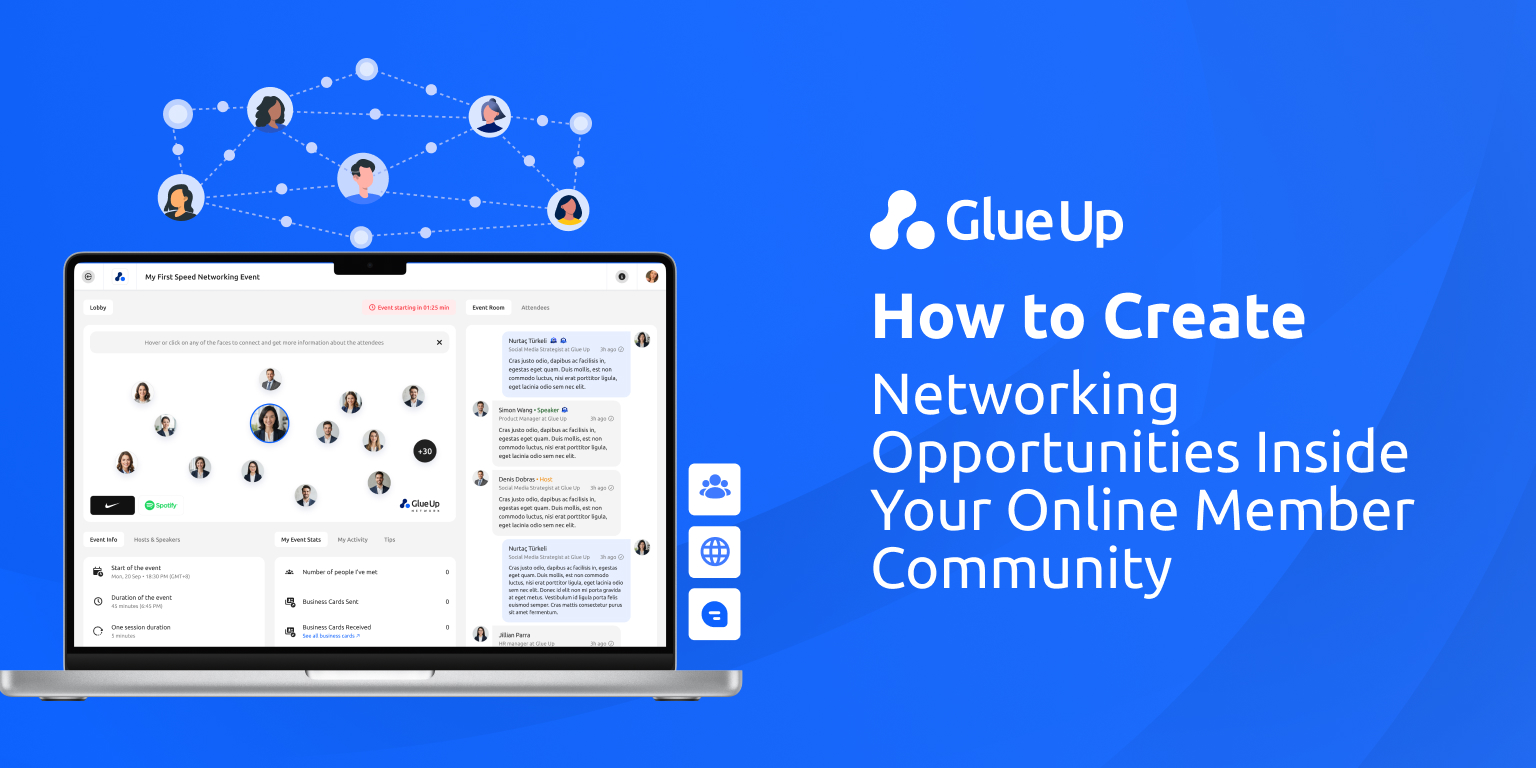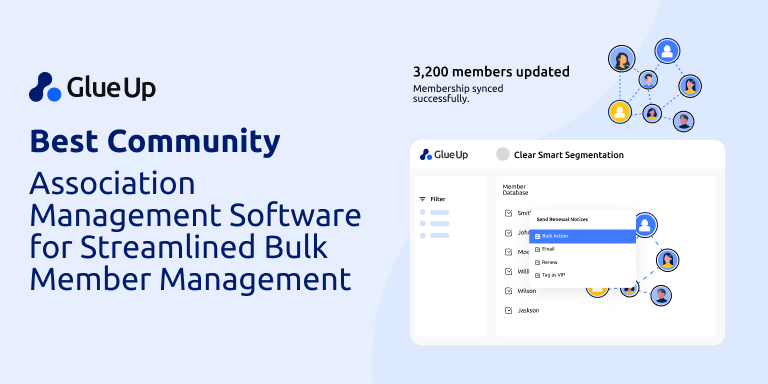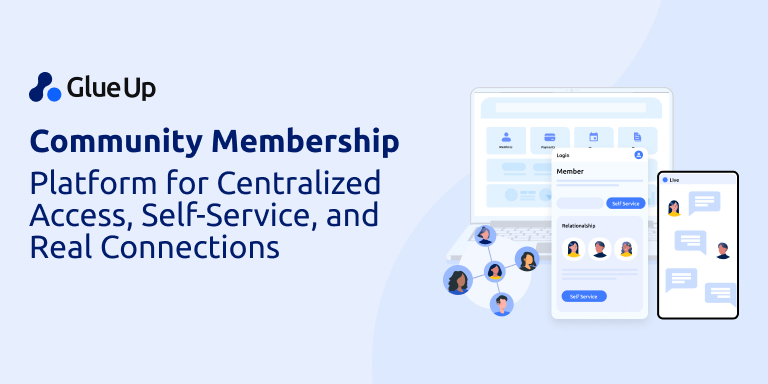![Community Management Software Buying Guide [16 Key Questions to Choose The Right One] Community Management Software Buying Guide [16 Key Questions to Choose The Right One]](/sites/default/files/2023-11/community%20management%20software%20buying%20guide%202.png)
There are several community management software options available on the market, all with different features and functionalities. But what are the most important aspects to consider when choosing the right one?
In this buying guide, we'll walk you through all 16 key questions that will give you a better understanding of the platform and help you decide which one is right for your community.
Let’s get started.
1. What is Community Management Software?
Community management software is a tailor-made private social media platform designed to increase retention, boost engagement, and protect your community’s information. This custom hub allows your community to exchange ideas, discuss relevant topics, and socialize.
It consists of several tools that facilitate and centralize community management activities, allowing you to manage, support, and interact with your members at the same time.
Additionally, it offers tools that help your monitor and measure metrics such as member engagement or satisfaction.
2. What Are the Different Types of Community Management Software?
Full-Service Platform
A full-service platform involves vendors taking care of every aspect of your community's lifecycle including implementation, management, and reporting. Since everything is managed by the vendor, there is no need for installation or configuration.
A full-service model may be a good choice if your people resources are limited but your budget is not an issue.
Open-Source Platform
Open-source models typically require you to set up and manage your own server. This program requires you to download the latest version and complete all installation and configuration tasks yourself. However, open-source isn't recommended for you if you lack a skilled IT team or the time to devote to it.
DIY Platform (SaaS-based)
While its name implies lots of similarities to the open-source model, the DIY model is actually a very different one. It runs on the cloud and is hosted on the vendor’s server so you don't have to download it. However, you can manage it on your own without any technical knowledge, just like an app.
It also eliminates the hassle of downloading and installing the software or managing servers.
Hybrid Platform
The hybrid solution is a combination of full-service and DIY models. The vendor provides a community platform you can begin using immediately but also assists with its setup. As soon as the software is installed, you are free to make changes and do moderation and analysis.
3. How Do Community Management Systems Work?
The community management module has the following capabilities:
Personalized news feed
Online community management platforms function like social media sites, where updates from your organization and members appear in real-time. However, unlike them, they are exclusive to members of your association.
Discussion forums and groups
Your community can create groups and forums on the platform to discuss ideas, support each other and connect with like-minded people.
Resource gallery
Members can access helpful content here, such as publications, articles, videos, webinars, etc.
Email notifications
Receive automatic notifications when a conversation member posts a new relevant post.
Event calendars
They keep your members informed about upcoming events.
Gamification elements
Maintain a leaderboard and award badges and awards to members who are most engaged through gamification technology.
Mobile app
Glue Up community module has a mobile app that lets them get the most of their memberships from the palm of their hand.
Single-click Log in
All-in-one platforms like Glue Up have the option to combine association management software (AMS) with digital community systems. As a result, your members can access it using the same login information they use for their member profiles and the member-only areas of your website.
Analytics
It allows you to analyze your organization's member engagement and identify areas for improvement using data.
4. What Are Some Common Features of Community Management Software?
A community management system provides a wide range of tools to help your members to stay updated and connect with each other. This includes:
User-generated content
One of the key features of the community platform is the ability to reshare customer posts as marketing materials. This user-generated content (UGC) is an effective way for associations to showcase their membership benefits while making them more relatable through personal touches.
Members can upload media or social mentions or request permission from other members to reshare them as UGC by searching by keywords, hashtags, location, or other details. These unique contributions provide your online communities with plenty of quality content.
Personal Member Experience
By utilizing the online community, members can fulfill their specific needs rather than receive the same benefits as everyone else. They may be able to find new collaborators, ask questions, organize contests, or meet new like-minded people. By joining the community, they are able to find exactly what they are looking for.
Access to Exclusive Resources
Typically, business card exchanges.
The system allows your members to generate and share their digital business cards. The cards have QR codes that allow them to avail of benefits and discounts.
You can also run webinars and other online events from the platform. By providing your attendees with a premium and seamless experience, you can give them access to presentations, and agendas, as well as chat with other attendees.
5. What Are the Benefits of Community Management Tools?
Member Retention
The software acts as a sustainable community hub with which you can maintain a lasting relationship with your customers. It keeps your members engaged which is the key to their long-term retention.
Member Acquisition
You can use the program as a unique selling point to help you get more members. You can add features like a forum, an e-learning platform, or job boards to make it more appealing to your potential customers.
Brand Reputation
The digital community platform allows you to present your brand with a fresh perspective, resulting in more subscriptions and loyal customers in the long run.
Analytics and Feedback
You can get direct feedback from your members through online community support and forums. The system also provides insights into members' engagement through events, finances, and online interactions. As a result, you can make improvements to your memberships in real time.
Cost-effective Marketing
Organizations can proactively manage conversations with their communities through the software. A loyal and active customer base helps you reach a greater number of people, reduce ad costs, and increase conversions.
6. Can the Software Engage Members Better Than the Website and Social Sites?
A community management solution is definitely better than social sites as it provides a secure and private interface for your members to connect. Unlike these sites, the platform does not share the members’ data with third-party apps.
However, both membership websites and community portals provide access to exclusive content and thus are crucial for a positive member experience.
7. Can the Software Replace Email Campaigns and Newsletters?
Both email campaigns and community sites play an important role in engaging your members.
While the platform helps your members to stay in touch with each other, newsletters foster a personal relationship between you and them.
Since the community management solution keeps your members updated with your latest content (benefits, events, and features), this might help you reduce the number of emails you send out.
8. Does the Software Have Any Drawbacks?
On-premise software/non-cloud-based are more expensive, require a tech-savvy team for deployment, and more time and people to manage and update the system.
The latest solutions, such as Glue Up, are adapted to SaaS models to address all these issues. Their data is stored in the cloud, which requires no downloads or technical expertise. Also, they are more economical and offer a range of customization and automation options.
9. What is the ROI of Online Community Platforms?
According to a survey conducted by Higher Logic, advanced community strategies are 2x more likely to deliver value to organizations.
Establishing a community requires constant monitoring, nurturing, and growth. Therefore, community management systems can help organizations achieve all these goals with less effort and time. It also automates several customer interactions, leaving more room for developing and implementing strategies.
This is demonstrated by Glue Up customers who report three times more engagement than associations without the software.
10. What Is the Cost of Community Management Software?
Each product has a different price, depending on the features it is offering. Pricing for Glue Up online community management module starts as low as $125 per month. You can find the right plan for your organization by getting a quote here.
11. What’s the Difference Between Community and Membership Management Software?
A membership management software automates membership workflows from the time of acquisition to the renewal. It includes features like event creation and posting, email marketing, membership application, renewal reminders, and finance management.
On the other hand, online community management program plays an important role in member engagement. It provides a secure digital space for your members to connect, share their interests, and build long-lasting relationships.
12. What Are the Different Deployment Options for Community Management Software?
There are two ways to deploy your software: on-premises and in the cloud. Compared to cloud-based deployment, on-premise deployment of community modules is typically offered at a higher price range.
On-premise community engagement software is hosted on your very own servers. These traditional systems require you to have a pre-built infrastructure and dedicated IT support. Also, upgrades to on-premise deployments can also be challenging due to the complexity of the technical support process.
Cloud-based community management software is available through the cloud. It is hosted, stored, and managed on your vendor's servers, and doesn't require any downloads or technical expertise. The only thing you need is an internet browser compatible with the software. Moreover, all users receive automatic feature updates without having to download anything.
Most systems nowadays are built on the cloud due to their seamless infrastructure and easy deployment. The Glue Up community management platform is also one such program that delivers its services online. You can simply access it via the internet or the Glue Up manager app, eliminating the need to manage complicated systems.
13. Are There Any Relevant Digital Community Management Trends I Need to Be Aware Of?
These are a few digitalization technologies that go hand in hand with online community management to increase your member engagement and maximize your business's benefits:
Mobile-First
As mobile devices are becoming more popular with consumers, more organizations are adopting mobile-first technology to offer a premium experience to their members. Therefore, when selecting any software, make sure it is compatible with mobile devices or has its own app, such as My Glue.
Automation
Automation is the newest technology that uses AI and bots to automate manual tasks. It is an integral part of digital community management tools and helps organizations streamline workflows, optimize outcomes, reduce errors, and drive digital transformation by improving system management.
Cloud Technology
Cloud technology is becoming increasingly popular owing to its flexibility, scalability, and agility. By storing all the data in the cloud, it eliminates the need for organizations to download heavy files, find IT experts, or update their programs manually.
Additionally, on-premises software is costly and difficult to deploy and manage which makes cloud-based platforms more popular.
Real-Time Analytics
Some robust community platforms like Glue Up allow you to make smart decisions by showing members' engagement in real-time from events, email marketing, finance, and more.
API-Based Integrations
Community management tools have extended functionality through integration with other apps and facilitating seamless data exchange.
14. How to Choose the Right Online Community Management Software?
Here is a checklist you should go through when selecting the best product for your community:
Customization
The Community Management software you choose should allow you to customize it according to the needs and interests of your customers as well as keep your branding alive. This includes configurable content elements such as post styles, newsfeeds, landing pages, and menus.
Scalability
In order for your organization to succeed, you need to have a growing member base, and thus the software you choose should have scalability options.
Make sure you check if the program is flexible enough to handle the growth of your memberships. If needed, you can ask your vendor whether the system can be scaled.
Integration
To ensure seamless sharing of your member data as well as extending the platform's functionality, ensure you purchase software that is compatible with your existing systems.
Ease of Use
A Community Management model must be intuitive so that your users can use it without extensive assistance or training.
Privacy & Security
This is the most crucial aspect of community management programs. Your members' data should remain extremely private without being shared with third parties.
15. Is It Possible to Integrate the Software With Existing Systems?
Yes, community management platforms serve well with other membership tools such as AMS and CRM.
A customer relationship management (CRM) tool helps you manage the relationship with your members by integrating internal processes and customer communications. Additionally, it provides deeper insights into your members' activities and identifies opportunities to nurture them.
On the other hand, Association Management Software (AMS) automates several administrative tasks, such as processing memberships, organizing events, creating and sending email campaigns, and collecting payments.
If you are looking forward to a consolidated solution, Glue Up is the right solution for you. It is an all-in-one engagement management solution that has all three modules combined. Additionally, you can add website management, event management, chapter management, or speed networking to your subscription, depending on the requirements of your organization.
If you are still trying to decide what products you need, you can contact our team to find the right solution for you.
16. How Easy Is It to Use the Platform?
Top community management tools like Glue Up are designed to be user-friendly since they are made for customers who might not be tech-savvy. They are like any other social site, however, they offer more privacy and networking opportunities with the relevant people.
Would you like to learn more about the software? Get a demo today and learn how intuitive and convenient our online community platform is.



